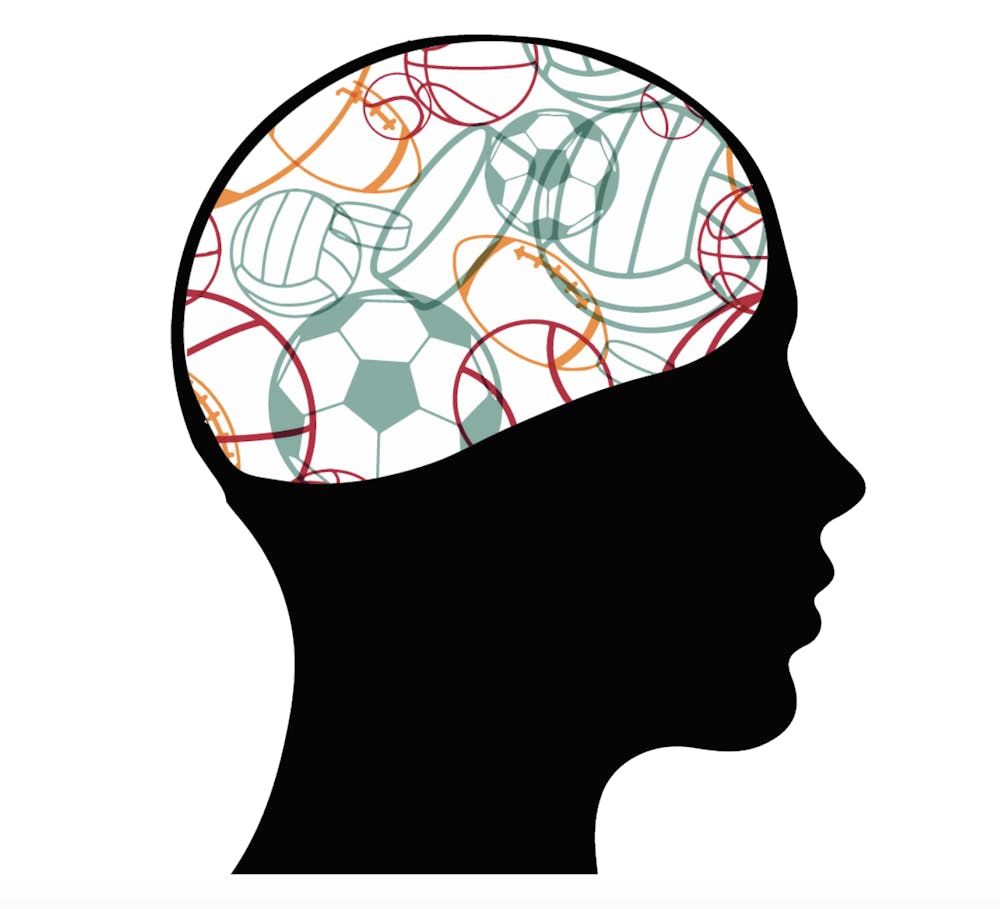From the Newsstands: This story appeared in The Eagle's April 2022 print edition. You can find the digital version here.
Editor’s Note: This story references substance abuse and suicide. Please see the bottom of this story for additional resources.
Tyler Skaggs was a talented pitcher with a career-earned run average of 4.41 and a standout in the Los Angeles Angels’ bullpen. Throughout his career, Skaggs was on and off of the injury list.
On July 1, 2019, Skaggs died of a drug overdose. An autopsy found drugs and alcohol in his system.
Eric Kay, former Los Angeles Angels communications director, was convicted on Feb. 17 in connection with Skaggs’ 2019 overdose. A federal jury found that Kay had supplied Skaggs with the oxycodone, which had been laced with fentanyl. At Kay’s trial, Skaggs’ mother, Debbie Hetman, testified that Skaggs had previously had an issue with opioids before his overdose.
Skaggs’ death and struggle with substance abuse, among other athletes, emphasize the need to see athletes as human. Simone Biles was at the center of the sports world’s attention in 2021 when she spoke out about mental health challenges amid the Olympics buzz.
Biles, a seven-time Olympic medalist, decided to step back from the women’s gymnastics team final in the 2021 Tokyo Olympics. Biles decided to prioritize her mental health, an uncommon choice among her fellow athletes. As one of the most influential athletes, Biles’ decision made a remarkable impact on the sports world.
“We also have to focus on ourselves, because at the end of the day we’re human, too,” Biles told the Associated Press. “So we have to protect our mind and our body, rather than just go out there and do what the world wants us to do.”
Biles’ decision was supported by her teammates and coaches. Sarah Hirshland, the U.S. Olympic and Paralympic Committee CEO, offered the U.S. Olympic and Paralympic Committee’s full support of Biles’ decision. The USA Gymnastics women’s program vice-president also supported Biles’ decision, labeling her “incredibly selfless.”
Katie Meyer, a goalkeeper for Stanford University’s Women’s soccer team, died by suicide on March 1. The star goalkeeper’s death once again opened the conversation about student-athlete mental health. Many took to social media to express their support.
There are organizations athletes can reach out to in times of need. One of these organizations is Athletes Against Anxiety and Depression. AAAD’s mission statement states: “The Athletes Against Anxiety and Depression Foundation is dedicated to providing resources to anyone that suffers from a mental health battle.” AAAD also strives to provide an inclusive environment where mental health is normalized.
“AAAD created a platform where individuals can share stories with no judgment and create a comfortable community where there is no stigma about mental health,” China McCarney, the founder of Athletes Against Anxiety and Depression, said in an interview with The Eagle. “We have to treat mental health how we treat our physical health.”
Both professional and collegiate athletes are held to unattainable standards. Professional athletes’ livelihood is based on their physical performance. Injuries can have a detrimental impact on an athlete’s mental health, according to the NCAA’s Sport Science Institute.
Injuries can also leave athletes feeling alone. Olympic Gold-medalist Picabo Street injured her leg and knee in March 1998. While recovering from her injury Street said she dealt with depression.
“I went all the way to rock bottom. I never thought I would ever experience anything like that in my life. It was a combination of the atrophying of my legs, the new scars, and feeling like a caged animal,” Steet told The New York Times.
In the age of social media, athletes are finally being able to demonstrate to their fans that they are not superhumans.
“It’s been pretty awesome,” McCarney said about the transparency on social media. “A night and day difference and there are more public resources now.”
NBA players have started to feel more comfortable speaking about mental health and taking mental health breaks. Rui Hachimura, a power forward for the Washington Wizards, recently took a five-month break from basketball.
The Minnesota Timberwolves’ center, Karl-Anthony Towns, lost eight relatives to COVID-19. Towns opened up about how the loss of his family members, one being his mother, impacted his mental health on the Facebook Watch show “Peace of Mind with Taraji.” After losing his mother, Towns said he dealt with survivor’s guilt.
Towns admitted that after the death of his mother he did not seek therapy.
“And I didn’t want to go to therapy and not be ready to talk. Because then I’m just sitting there, I could bullsh-- my way through anything,” Towns said. “I could give you a sense of feelings, but no feelings.” Towns’ vulnerability about the difficulties of seeking help destigmatized therapy among athletes.
While trailblazers like Biles and Hachimura speak up about mental health, progress still has to be made in balancing both the physical and mental health of athletes.
To seek help or access information about accidental overdoses or harm reduction resources near you, visit the National Harm Reduction Coalition’s resource page. If you are experiencing grief or trauma following the death of a loved one, visit the Grief Recovery After a Substance Passing resource page.
The Substance Abuse and Mental Health Services Administration National Helpline can be reached at 1-800-662-HELP(4357) for individuals and families facing mental or substance abuse disorders.





